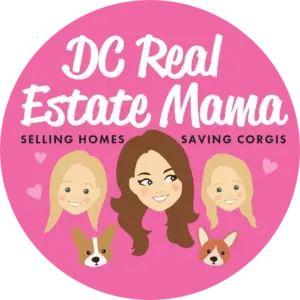Also published on the Huffington Post.
~~~~~
The real estate market in DC is fascinating on many levels. The market has yet to slow down, continuing to go up up and up long past the time the rest of us in the industry thought it would. But it’s the old story, rates are still historically low and the city is in such high demand now that housing supply is still so shockingly non-existent.
But what I think keeps us afloat here is that we have so many different types of buyers in this market. People buying their home, foreigners buying a pied-a-terre, investors looking to purchase and become landlords and investors looking to renovate and sell. The flavor of this game has changed quite a bit though in recent months. The days are long gone where there were great homes are waiting to be scooped up for under market value and rented at a premium. In fact, there are very few properties in the city where you could actually break even if you were planning to buy now to become a landlord. Housing has gotten so expensive here that the monthly outlay of mortgage to rent is, for the most part, on par.
The addition of Airbnb has also changed the market dynamic here as well. With continuing battles about how Airbnb fits into the economy (both locally and nationally) from a regulation standpoint, finding a good investment is difficult. Most condominiums have covenants that prevent a subletting situation, requiring that leases be a minimum of 6 months or in some cases, a year. And it’s rare to find an owner of a single family home who is financially secure enough between the purchase price and the unstable rentals of the vacation market to utilize the service. But DC has a special type of house that lends itself well to both being a primary residence and having investment potential for either a regular tenant or Airbnb. Enter, the row home.
Why is a row home an investment worth looking at further? Several reasons.
1. Increasing real estate prices: With the price of housing in DC on an upward trend, many buyers are looking for ways to make their money go further by finding properties with rental potential. With more people staying in the city instead of doing the classic cliché move to the suburbs, there are more and more clients asking for “rentable basements” on their wish list.
2. Convenience of finding tenants: with sites like Airbnb, VRBO and HomeAway it’s easy to find short term tenants for your property.
3. Tourists want to feel like a local: DC’s most popular neighborhoods like 14th Street corridor, U Street, Shaw, Bloomingdale and Capitol Hill have a distinct shortage of hotels. Tourists are increasingly seeking a “local experience” because of DC’s vibrant restaurant and arts scene. Not to mention the average hotel rate in DC in 2014 was $250/night*, much higher than the typical nightly rate of $75-150 on Airbnb, VRBO or HomeAway.
4. Lack of short term housing: DC also has a lack of short term housing, and we see these rental services filling that void. We’ve had clients sell their condo, then rent a basement on Airbnb for a few months while they shopped for their new home. Same goes for professionals in town on a short term assignment.
So what are we talking about in terms of financial upside?
Take this listing as an example:
A row home in one of the hottest neighborhoods – Bloomingdale: the estimated mortgage payment (Principal, Interest, Taxes & Insurance) with a 20% down-payment is $3,971. The basement could rent for $1,650/mo to a standard tenant or for $75-150 a night on Airbnb. That extra income could decrease your monthly payment by at least 58%! That’s a lot of extra cash to have access to, and a way to make city living incredibly lucrative. Another upside – if any of the potential Airbnb regulation comes to fruition (only allowing one rental at a time per host, host must be present at rental) then the row home certainly dodges those potential obstacles.
As with anything, there are always downsides to becoming a professional landlord. You will need to maintain the property, take care of issues that arise and make sure you have your business license and DCRA inspection. And definitely discuss the tax implications with an accountant.
Footnotes:
*http://www.statista.com/statistics/202406/average-daily-rate-of-hotels-in-washington-dc/
*Assumptions used when calculating payment: $6,124 annual property taxes; 3.875% interest rate; 20% down; $950 annual homeowners insurance.




